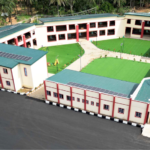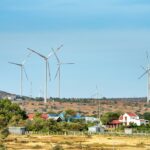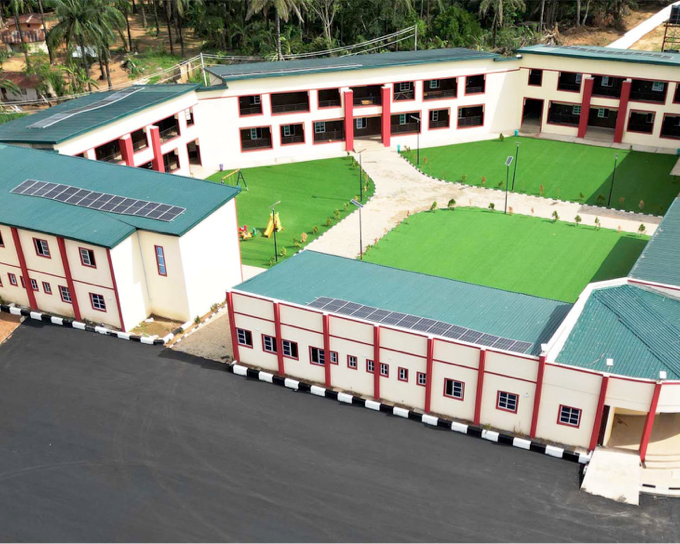- Home
- Features
- Startup Zone
- Projects
- Policies
- Shop
- Policies
- Projects
- Startup Zone
- Country Spotlight
- Analysis
- Tech
- Policies
- Projects
- Startup Zone
- Country Spotlight
- Analysis
- More
- Beyond the Kalashnikov: Africa’s Shift Toward Technology-Driven Warfare
- Afrail Express: Uniting a Continent on Rails
- AFRICA’S ENERGY CORRIDORS: CONNECTING POWER, PEOPLE, AND PROSPERITY
- Startup Lions Campus: Empowering Kenya’s Digital Generation
- L’Art de Vivre’s Le Paradis de Mahdia: Tunisia’s Model for Sustainable Luxury
- The Lobito Corridor: Rewiring Africa’s Trade Arteries Through Strategic Infrastructure
- AFRICA’S GREEN ENERGY TRANSITION: A BEACON OF HOPE FOR CLIMATE ACTION
- Dangote Refinery: Showcasing Africa’s Project Success Story
- AFRICA GREEN ECONOMY: ALL YOU NEED TO KNOW
- The Most Important Amicus Brief in the History of the World
- The Rise of Indigenous UAVs: Africa’s Drone Capabilities in Warfare and Surveillance
- AFRICA’S LARGEST OIL PRODUCERS: A COMPREHENSIVE OVERVIEW
- Beyond the Kalashnikov: Africa’s Shift Toward Technology-Driven Warfare
- Afrail Express: Uniting a Continent on Rails
- AFRICA’S ENERGY CORRIDORS: CONNECTING POWER, PEOPLE, AND PROSPERITY
- Startup Lions Campus: Empowering Kenya’s Digital Generation
- L’Art de Vivre’s Le Paradis de Mahdia: Tunisia’s Model for Sustainable Luxury
- The Lobito Corridor: Rewiring Africa’s Trade Arteries Through Strategic Infrastructure
- AFRICA’S GREEN ENERGY TRANSITION: A BEACON OF HOPE FOR CLIMATE ACTION
- Dangote Refinery: Showcasing Africa’s Project Success Story
- AFRICA GREEN ECONOMY: ALL YOU NEED TO KNOW
- The Most Important Amicus Brief in the History of the World
- The Rise of Indigenous UAVs: Africa’s Drone Capabilities in Warfare and Surveillance
- AFRICA’S LARGEST OIL PRODUCERS: A COMPREHENSIVE OVERVIEW
- Beyond the Kalashnikov: Africa’s Shift Toward Technology-Driven Warfare
- Afrail Express: Uniting a Continent on Rails
- AFRICA’S ENERGY CORRIDORS: CONNECTING POWER, PEOPLE, AND PROSPERITY
- Startup Lions Campus: Empowering Kenya’s Digital Generation
- L’Art de Vivre’s Le Paradis de Mahdia: Tunisia’s Model for Sustainable Luxury
- The Lobito Corridor: Rewiring Africa’s Trade Arteries Through Strategic Infrastructure
- Startup Zone
Top Insights
Electric Vehicles in Africa: Can the Continent Catch Up?

As the world increasingly shifts toward sustainable energy solutions, Africa has a unique opportunity to leapfrog traditional internal combustion vehicles and embrace electric vehicles (EVs). Contributing factors such as rising fuel costs, growing environmental concerns, and the continent’s wealth of natural resources create a fertile ground for the expansion of the EV market in Africa. Although the adoption of electric vehicles currently lags behind that of other regions, indicators suggest that Africa is on the cusp of a significant transformation in its transportation landscape.
The Current State of Electric Vehicles in Africa
At present, Africa has a modest count of only about 20,000 electric vehicles and fewer than 1,000 charging stations across the continent. However, significant developments are underway, with local manufacturers establishing production plants in 21 countries. These advances are being propelled by a growing recognition that electric mobility could be Africa’s ticket to economic growth and modernisation.
READ ALSO: Rural Electrification Projects Changing Lives in Africa
The Importance of Local Manufacturing
The drive for a robust local EV manufacturing industry is not just about improving environmental sustainability; it also presents an opportunity for economic empowerment. Establishing homegrown EV manufacturers can significantly reduce dependence on imported vehicles, create jobs, and contribute to the local economy. By employing local workers, particularly women, EV production can foster economic inclusion while directly addressing the broader societal needs for affordable and accessible transportation.
Taking South Africa as a case study, the country has historically been a hub for fuel vehicle manufacturing, producing over 500,000 cars per year and contributing 5% to the national GDP. This is changing, as major players—like Ford, investing $281 million in a hybrid vehicle facility, and Stellantis, which is setting up an electric Jeep plant—shift focus toward greener alternatives.
Meanwhile, Nigeria, with its vast population of over 200 million, has largely been absent from the global automotive scene but is beginning to pivot. The local manufacturer Innoson plans to establish an EV manufacturing plant, while the Nigerian government encourages major automakers to set up production in the country. This movement is indicative of a larger trend that aims to bring localised solutions to the continent’s automotive challenges.
Growing Local Supply Chains
To support EV manufacturing, operators are working to produce vehicle components domestically. As stated by Innoson representatives, it is illogical to rely on imported batteries and parts when local resources are available. Botswana, for instance, has invested $26 million in establishing local battery production, which will complement the growing EV assembly market.
Critics often argue that Africa is merely engaged in “assembly” rather than true manufacturing. However, this view overlooks how contemporary manufacturing operates. Assembly is not a final destination, but rather a crucial step on the journey toward full manufacturing capabilities. Over time, as local demand for EVs rises, the skills and infrastructure needed for advanced manufacturing will follow.
An Explosive Growth Phase
Africa’s prospects for e-mobility are not hypothetical; they are happening now. Significant assembly ventures are emerging across the continent, including:
• Roam: Established an assembly plant in East Africa that aims to produce 50,000 e-motorbikes annually.
• BasiGo: Unveiling e-buses in Kenya with plans to contribute thousands of electric vehicles to public transportation by 2027.
• Kiira Motors: Set to assemble 20 buses per day in Uganda.
As the number of assembly projects increases, market competition heats up, driving prices down and enhancing affordability. Partnerships between local investors and international car manufacturers also hold promise; for instance, Egyptian investors are collaborating with FAW to create some of the most wallet-friendly electric vehicles.
Morocco: A Beacon of Progress
Morocco is rapidly becoming the epicentre of vehicle production in Africa, outpacing South Africa. The Moroccan automotive sector now accounts for 22% of GDP and generates approximately $14 billion in exports. Local industry leaders are pushing for even more significant investments in electric vehicle production, forecasting that by 2030, electricity will play a central role in manufacturing a large percentage of vehicles, aiming for an annual output of 700,000 cars.
Collaborating for Success
While individual countries work to grow their local EV markets, challenges such as small domestic markets and the need for collaborative industrial policies remain. A sustained shift toward electric mobility across Africa requires free trade and open borders. The success story of Tanzania, which has ordered electric buses from Uganda, illustrates how collaborative policies can lead to regional success.
Tackling Key Challenges
For African manufacturers to succeed, they must navigate several hurdles, including:
• High Capital Costs: The initial investments required for EV projects can be substantial.
• Competition from Used Imports: The influx of second-hand vehicles undermines the nascent local industry.
• Infrastructural Gaps: Limited energy access, particularly in rural regions, coupled with unreliable power grids, complicates EV adoption.
Yet, opportunities abound. The African Electric Vehicle Market is projected to reach $15.8 billion in 2024 and $25.4 billion by 2029, fueled by increasing consumer demand, proactive government policies, and strategic partnerships.
A Call to Action
The momentum for electric vehicles in Africa is palpable, but realising the continent’s full potential hinges on addressing existing challenges and embracing growth opportunities. With abundant natural resources and a burgeoning demand for sustainable transportation, Africa stands at a crossroads. Through concerted efforts focusing on manufacturing, infrastructure development, and supportive policies, African nations can not only catch up with global trends but also lead in the electric vehicle revolution.
In this journey, it is crucial to remember that the green economy must also equate to prosperity for local communities, merging climate relief with tangible economic benefits. The rise of electric vehicles could not only position Africa favourably within the global green economy but also uplift millions of lives across the continent.
Recent Posts
Related Articles
Off-Grid Energy Expansion: The Leaders Powering Africa’s Future
Access to reliable electricity remains one of Africa’s most critical development challenges....
ByafricaprojectJanuary 13, 2026The Architects Designing Africa’s Next Landmark Buildings
The Architects Designing Africa’s Next Landmark Buildings Africa’s urban skyline is undergoing...
ByafricaprojectJanuary 12, 2026TRANSFORMING EDUCATION: THE NEW UNIVERSITY AND TECHNICAL CAMPUS PROJECTS ACROSS THE CONTINENT
Across Africa’s diverse landscape, a quiet revolution in higher education is taking...
ByafricaprojectDecember 22, 2025URBAN RENEWAL AND REGENERATION: BUILDING SMART, GREEN CITIES ACROSS AFRICA
Africa is urbanising faster than any region on the planet. By 2040,...
ByafricaprojectDecember 2, 2025













